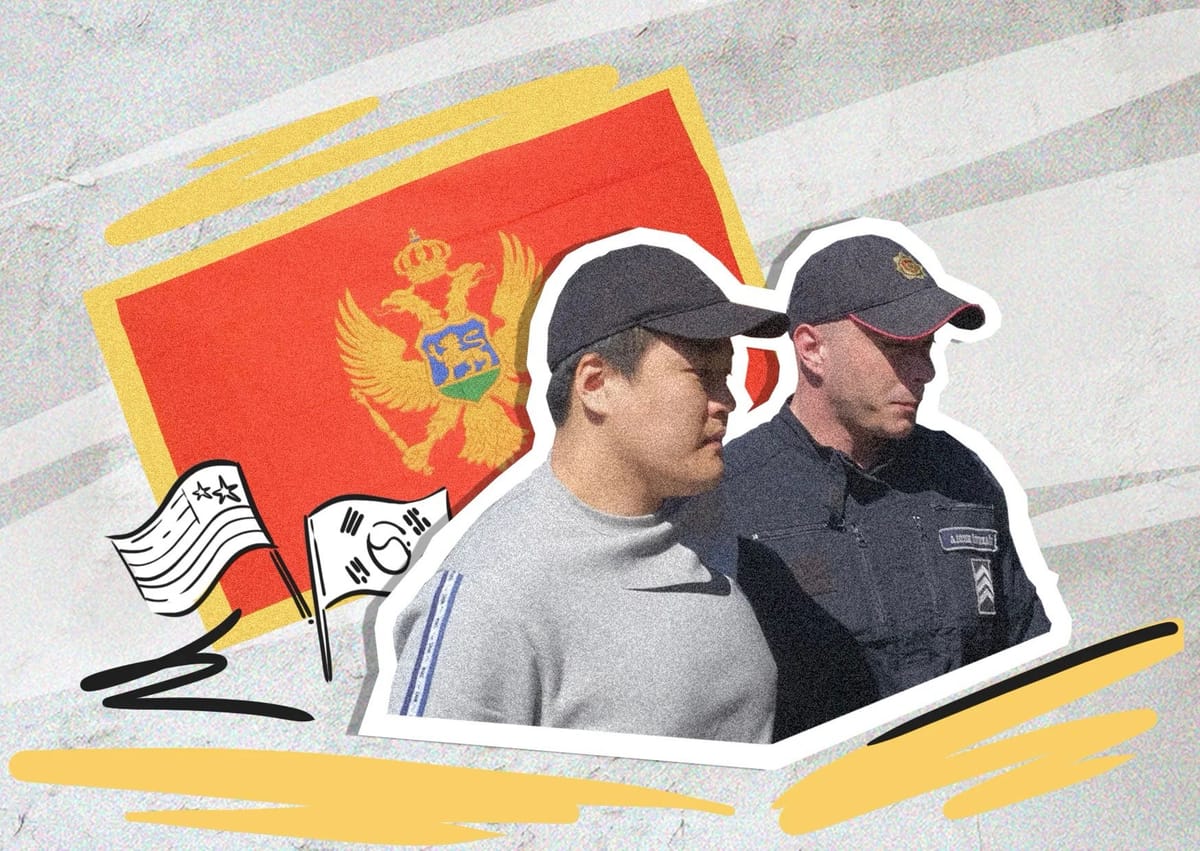
Do Kwon, the former CEO and co-founder of Terraform Labs, and the individual at the center of the TerraUSD (UST) and LUNA token collapse, was released from prison in Montenegro on Saturday, March 23.
Kwon's release comes as the Montenegrin Supreme Court deliberates on extradition requests submitted by both South Korea and the United States. He has been detained in Montenegro since March 2023, after authorities apprehended him and his business partner Han Chang-joon at Podgorica Airport, as they attempted to board a private plane to Dubai using fake Costa Rican travel documents.
According to Bloomberg, Darko Vukcevic, the director of the Montenegrin prison where Kwon was held, confirmed that Kwon was released after serving his four-month sentence for using forged travel documents. After his release, Kwon was reportedly transferred from the prison in Spuž to a shelter for foreigners near Podgorica.
State TV reported that his passport had been confiscated to prevent him from leaving Montenegro and that he was moved to a shelter for foreigners. Goran Rodic, Kwon's lawyer, said he would appeal to a court, arguing that Kwon should remain free while awaiting a final decision on his extradition.
Both South Korea and the U.S. have filed extradition requests for Kwon. South Korean authorities issued an arrest warrant for Kwon in May 2023, accusing him of fraud and financial crimes related to the Terra ecosystem collapse. The U.S. Securities and Exchange Commission (SEC) filed charges against Kwon and Terraform Labs in March 2023, alleging that he and the firm "misrepresented and fraudulently concealed" information about the Terra ecosystem, including UST's peg to the U.S. dollar, leading to losses of over $40 billion. The lawsuit centers on alleged misleading statements concerning the stability of their algorithmic stablecoin and the integration of the Terra blockchain with a Korean mobile payment application. The trial started on Monday in a Manhattan court.
Devon Staren, an SEC attorney, called Terraform Labs "a house of cards," Reuters reported Monday. The company's attorney, Louis Pellegrino, countered the SEC's opening claims, arguing they relied on selective evidence and incentivized witnesses who might benefit financially from a successful SEC lawsuit. Kwon's lawyer, David Patton, said that Kwon never portrayed UST as a risk-free investment. Patton argued the collapse was a failed venture, not a fraudulent scheme: "Failure doesn't equal fraud."
On March 22, the Supreme Court of Montenegro announced it suspended earlier decisions from lower courts that favored South Korea's extradition request. This suspension stalls efforts to hand Kwon over to his home country, where penalties are said to be lighter than in the U.S.
The Supreme Court's decision followed a proposal from the State Prosecutor's Office to postpone the extradition, citing procedural errors in the lower court rulings. This means extradition to either country is on hold, pending further deliberations by the court. No timeframe for a final decision has been announced.
Chang-joon's extradition to South Korea in early February suggests a potential advantage for South Korea, considering their completed investigation and ongoing trial against Daniel Shin, Terraform Labs' other co-founder. This existing legal framework could incentivize Montenegro to expedite the process by choosing South Korea. On the other hand, the SEC's more in-depth investigation, coupled with the U.S. justice system's reputation for harsher penalties for financial and crypto crimes, will significantly influence the court's decision.
Ultimately, the Montenegrin Supreme Court faces a complex decision as they must weigh the efficiency of South Korea's existing legal framework against the potentially more comprehensive investigation and stricter potential punishment offered by the U.S.
The prices of Terra (LUNA), the token of the new Terra 2.0 chain, Terra Luna Classic (LUNC), the rebranded original token, and TerraClassicUSD (USTC) all experienced surges following the news of Kwon's release on Saturday and the first day of the trial on Monday. A recent upgrade (v2.4.2) implemented on the Terra Luna Classic chain may also have contributed to the token's price increase, according to CoinGecko and CoinMarketCap data.

